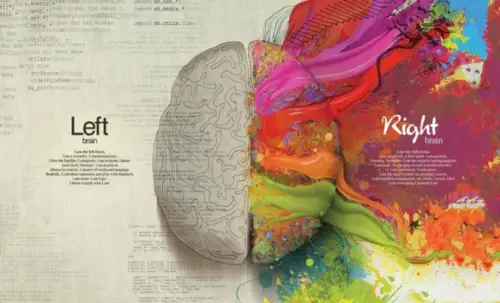For far too long, intelligence was viewed through a narrow lens – one focused solely on the brain’s computational power. IQ tests and academic metrics claimed to capture intellectual capacity, but we now know they reveal just a fraction of human potential.
Intelligence is not defined by what traditional pencil-and-paper tests can measure. Rather, it radiates through our entire being, manifesting itself in diverse and remarkable ways that make each of us unique.
Scientists have identified 12 distinct types of intelligence that speak to the multiplicity of human ability. These intelligences live within our bodies, our personalities, our emotions, our relationships.
Some types may come more naturally, while others require cultivation. But together they paint a fuller, more nuanced picture of what intelligence truly means. Beyond the brain, intelligence infuses almost everything we do.
Knowing about these diverse intelligences allows us to better recognize our own innate abilities and where we need support. We can intentionally develop skills in our areas of strength while also mindfully improving capacities that don’t come as naturally. In this way, the 12 intelligences provide an empowering framework for reaching our full potential.
For too long we have thought of intelligence as singular and academic. But the brilliance of the human mind goes far beyond what traditional metrics can capture.
Discover how you can nurture these abilities to turn your potential into achievement. The path to success lies in recognizing and fully tapping into the many gifts that make you an original.
The 12 Types Of Intelligence
There are 2 main types of intelligence which most people are familiar with. Logical thinkers and creative thinkers. From here, we break these down into 6 intelligence types each. Continue reading to find out what type of intelligence you hold.
Logical Intelligence
The Naturalist
The naturalist intelligence allows people to connect deeply with the natural world. Naturalists excel at observing, understanding and organizing patterns in nature. They have heightened awareness of plants, animals and other aspects of their surroundings. In daily life, the naturalist may thrive in roles that allow them to work outdoors like botany, marine biology or environmental science. Their innate curiosity helps them constantly gather and analyze data.
The Logical Analyzer
Individuals with logical intelligence think conceptually and discern connections through reasoning. They can easily identify patterns, categorize information and test hypotheses. The logical analyzer gravitates to STEM fields, preferring occupations that allow them to solve complex problems through scientific inquiry. In daily situations, they bring an analytical approach, seeking data to support decisions.
The Melodic Maestro
The melodic maestro has a strong musical intelligence. They have superior pitch, tone and rhythm. Music comes naturally, whether it’s reading compositions, playing instruments or producing songs. In daily life, the melodic maestro may soak in soundscapes or hum to themselves. Their innate musicality can translate to careers as performers, composers, producers and more.
The Intrapersonal Insightist
Intrapersonal intelligence relates to inner awareness and processing of one’s own emotions. Intrapersonal insightists have a deep understanding of themselves, including their strengths, challenges, motivations and desires. In daily life, they often require solitude to reflect. Strong intrapersonal ability aids writers, philosophers and psychologists.
The Interpersonal Connector
In contrast, interpersonal intelligence focuses outward – on effectively understanding others. Interpersonal connectors are adept at reading social cues and navigating diverse dynamics. They build rapport with ease and can bring people together. Careers in counseling, sales, politics and more leverage these skills. In daily interactions, they shine when collaborating.
The Linguistic Wordsmith
Linguistic intelligence refers to the ability to use language masterfully. Linguistic wordsmiths have expanded vocabularies and syntactical mastery. They craft compelling stories, code programs and captivate audiences. This strength suits positions as writers, orators, poets and linguists. In daily life, they eloquently articulate ideas and insights.
Creative Intelligence
The Bodily Kinesthetic Performer
Bodily kinesthetic intelligence relates to movement and physical expression. Those with pronounced bodily kinesthetic talent have innate awareness and control of their bodies. They pick up new physical skills rapidly, from dance to sports to mechanical repair. Performers, athletes, surgeons and dancers exhibit this intelligence. In daily situations, fidgeting or gesturing helps them process thoughts.
The Artistic Visionary
Artistic intelligence involves visualizing the world creatively. Artistic visionaries have heightened aesthetic sensibilities, able to realize imaginative visions. Painting, photography, cinematography and other visual arts allow them to translate beauty into tangible forms. Their visual perception also enables graphic design and architectural work.
The Spatial Navigator
Spatial intelligence deals with understanding the relationship of objects in space. Spatial navigators can visualize images three-dimensionally and navigate surroundings effortlessly. They rarely get lost and thrive at solving puzzles. Architects, engineers, sculptors and surgeons often exhibit spatial acumen. In daily situations, they sketch ideas to think them through visually.
The Existential Contemplator
Existential intelligence relates to the ability to ponder “big picture” ideas like the meaning of life, why we exist and other profound questions. Existential contemplators search for truth and purpose, which can suit philosophical or religious vocations. In everyday scenarios, they may appear introspective or ask thought-provoking questions.
The Mathematical Analyzer
Individuals exhibiting mathematical-logical intelligence naturally compute numerical data and ratios. Mathematical analyzers think abstractly, discern patterns and logically solve complex calculations. Quantitative fields like accounting, finance, analytics and cryptography leverage such skills. In daily situations, mental math or statistic-based thinking comes intuitively.
The Diplomatic Bridge Builder
Diplomatic intelligence combines interpersonal and existential intelligence to spur conflict resolution. Diplomatic bridge builders leverage empathy, ethics and big-picture thinking to forge agreements. They thrive as mediators, negotiators and peacemakers. In daily interactions, they intuitively grasp multiple perspectives when problem-solving.
In Conclusion
Understanding these 12 intelligences provides a fuller picture of human cognitive diversity. Our strengths and weaknesses across these domains make us who we are. With this framework, we can better recognize our innate abilities while developing skills that don’t come as naturally. When intelligence is not limited to test scores, we open the doorway to reaching our full potential as original, multifaceted individuals.
For too long, intelligence has been narrowly defined by what can be measured through standardized tests. But the human mind is so much more complex and diverse than academics alone. As science reveals, intelligence manifests itself in many remarkable ways that make each of us unique.
Linguistic eloquence, musical mastery, spatial reasoning, athletic performance – these are just some of the many facets that speak to who we are. While certain intelligences may come more naturally, purposeful development of our skills can help us become more holistic, well-rounded individuals.
Understanding the 12 intelligences empowers us to think outside the brain and embrace the full spectrum of human potential. We can leverage our innate strengths while also mindfully cultivating new capacities for growth. When intelligence is not limited to a single score, we open ourselves to excelling in the many ways we are individually gifted.
So let us move beyond outdated notions of intelligence confined by tests. Instead, may we celebrate the original brilliance found in each person. With greater awareness of the 12 intelligences, we can nurture the abilities that make us who we are and achieve our highest potential. The future belongs to those who can leverage the full range of what makes them uniquely intelligent.





